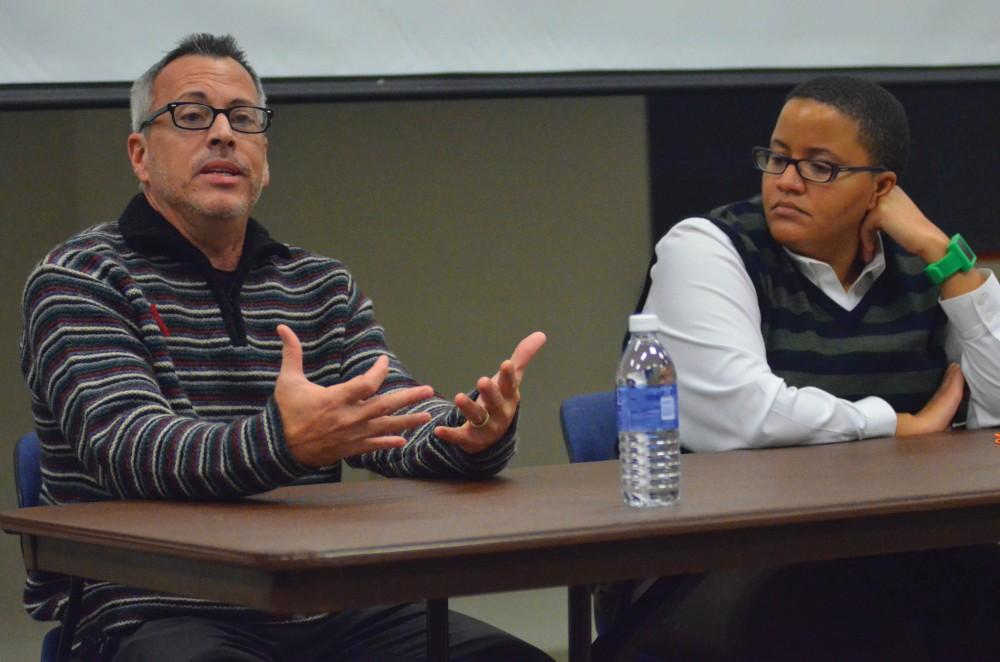GVSU event acknowledges World AIDS Day

GVL/Nathan Kalinowski Charlie Johnson disscusses numerous topic at the World Aids Day event.
Dec 4, 2013
In honor of the nationally recognized World AIDS Day, the Grand Valley State University Women’s Center, in association with the LGBT Resource Center, presented the documentary “ENDGAME: AIDS in Black America,” and held a discussion panel to raise awareness about the disease.
The film explores the prominence of HIV in the black community and provides a look into prevention and reduction techniques. The program also focused on breaking down the stereotype that HIV is a disease that only affects gay, white males.
“We need to look at the intersecting oppression that occurs between people in reference to the HIV virus,” said Brittany Dernberger, assistant director of the Women’s Center. “It’s important to look at the reasons why HIV is characterized as a white disease so we can help get rid of these kinds of myths.”
The video explained the introduction of HIV into the black community through shared needles from drug use. It also touched on the consequences of the Drug Paraphernalia Act, which increased the amount of contaminated needles due to higher constraints and punishments for drug use.
The film went on to cover the transfer of HIV from black males to women in the community, as well as the struggles of women who had to suffer with HIV not being recognized as a multi-gender disease due to male-based stereotypes.
“Change is a product of continuous pressure,” said Ayana Weekley, professor of Women and Gender Studies and one of the discussion panelists. “That’s how things happen. Big decisions are made in response to activist pressure.”
Other panelists for the event included Karen Zivi, Honors College professor, and Charlie Johnson, a member of the Grand Rapids RED Project, which is an organization that raises awareness about AIDS prevention in the Grand Rapids community.
One of the final topics addressed was the problem of disease ignorance within and outside of at-risk communities. Many individuals who are HIV-positive are unaware of the fact that they have the virus, causing the unintentional spread of disease to sexual partners.
With more than 32 million people suffering from HIV since 2003, the idea of people suffering without proper knowledge of the disease that surrounds them is becoming a much bigger problem than ever before.
“It doesn’t matter if you fit the typical demographic for HIV,” Johnson said. “The idea is to get angry about the situation rather than simply accepting the disease as it is.”
For more information on the Grand Rapids RED Project, visit www.redprojectgr.org.

























